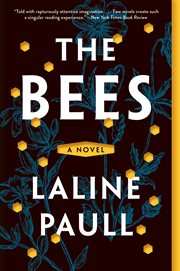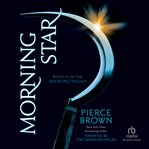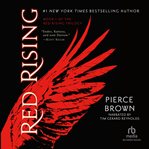Review by New York Times Review
LAUNE PAULL'S AMBITIOUS and bold first novel, "The Bees," follows Flora 717, a sanitation worker doomed by her birth to the lowest caste of her community. She is large and ugly and - oh, yes - a bee. What could feel gimmicky or cute never does; Flora 717 is a brave and spirited soul, and it is a pleasure to follow her through the hive and the air. The brief prologue and epilogue are the only sections of the book with humans, aside from a single scene halfway through in which a man harvesting honey comes off something like Godzilla. Truly, who needs people when bees provide this much pathos? At first, the reader questions everything. Is this really how bees are born? Is this how they communicate? By the middle of the book, I stopped wondering which tasks Pauli had imagined and which were real, because they all seemed equally plausible. By the end, I began passing off every detail of the book as fact - "Wax seeps out of the bands in a bee's abdomen, you know" - as if I had a Ph.D. in apiology. One of the most satisfying aspects of "The Bees" is Pauli's architectural awareness. We are in a beehive, after all, that beautiful feat of engineering, and it is great fun to see the antechambers and halls from the inside. Flora becomes something of a Zelig, which I felt grateful for, if only because the day-to-day life of a sanitation worker wouldn't grant access to some of the more glorious rooms in the hive. It is the job of the Floras to collect the bodies of dead bees and dispose of them, to sweep the gutters. Like her thousands of sisters, Flora 717 understands what her fellow bees are thinking through scent and vibration and touch. Unlike her Flora sisters, however, Flora 717 is prone to speech and action, and through these attributes as well as her ugliness and size, she is singled out for duty. The Sages, a high-ranking order of priestess bees, see something in Flora 717, and they are proven correct - she can produce Flow, royal jelly, the descriptions of which are among the most accurate descriptions of breast-feeding in fiction. "As it opened its tiny mouth to cry," Pauli writes, "two pulses began flickering in Flora's cheeks and her mouth began to fill with sweet liquid." Flora thrives at her new job, despite being looked down upon by the other nurses. They need her there - we know that supplies have been low because of cold and rain and lack of food - and so she remains. The first commandment of the hive is to "Accept, Obey and Serve," and Flora is nothing if not dutiful. The dogma of the hive is paramount. One day, when Flora 717 is lost in the transmission of the Queen's Love (a daily communal prayer), she feels a strange sensation in her body, and the reader identifies the likely culprit before Flora does - she is carrying an egg, a blasphemous offense. This is where the book turns from a buzzy version of "Animal Farm" toward a story more inspired by Margaret Atwood's dystopian novel "The Handmaid's Tale." Flora 717's feelings for her offspring are wholly separate from her love for the queen. The novel examines what members of each class are permitted to say, think and know. Even as Flora 717 feels intense guilt about her own body, she wants to do what she knows she should not. Despite the honor of being asked to make Flow, Flora 717 is restless, and she quickly moves up the ranks, reinventing herself yet again as a skilled forager. Flora's first few flights are remarkably vivid. "Below her spread the great plain of different greens," Pauli writes, "pushed together in crude four-sided shapes as if by some primitive insect ignorant of the beauty of the hexagon." Some of my favorite scenes are of Flora in the dance hall, the room where the foragers explain where they've been and where to find food, all communicated through rapturous dance. There is also humor here: The male bees - preening, strutting drones - are hilarious sex fiends. "Think now of those foreign princesses waiting for us. How fatigued, how impatient for love must they be? Would you bind them in chastity a single moment longer? Or shall we fill our bellies with the strength of this hive, then free them with our swords?" This is accompanied by a suitably lewd gesture. Through all of her flights and dances, however, Flora's thoughts are with her egg, which she has delivered and hidden in the nursery, alongside the queen's. She is so busy foraging that she cannot visit it. When she finally makes it to the nursery, the fertility police have killed her child - a beautiful boy, a drone. It is hard not to read the plight of the working mother in Flora 717's heartbreak. Soon, Flora produces another egg, and she vows to care for it. Before she delivers the egg, she crafts herself a rough crib out of wax and hides the baby away in a secret chamber, one of many parts of the book that feel like a fairy tale. That egg is also lost, when the Godzilla man dismantles the hive to harvest the honey. Winter arrives, and the hive suffers. Day after day, bees die, their bodies exhausted from luckless foraging. In a scene like something out of a horror film, the remaining drones are murdered. (Another important piece of my forthcoming apiology dissertation: A bloody massacre is always great fun!) A cadre of spiders appears next to the hive, wise, truth-telling villains. They exchange bees for information, and one whispers to Flora that she will have one more egg. Though the book's ending - the fate of Flora 717's third and final egg - is visible halfway through, the brazenness and strength of the conceit is enough to make that a minor infraction. When a story is told with such rapturously attentive imagination, it feels very small indeed to quibble. Some aspects didn't always work (the six "scent panels" in the queen's library that narrate the life of the hive, the political schemings of the Sage sisters and the spiders), but the tale zooms along with such propulsive and addictive prose that I didn't mind. Forward-thinking teachers of high school environmental science and biology will add "The Bees" to their syllabuses in a flash. Not only is this novel a gripping story of a single bee's life, it is also an impossibly well-observed guide to the important role bees play in our human lives. When I finished the book, I stepped outside my door and into a spring day, full of buzzing and pollen, and I wanted to thank each and every bee for its service. Few novels create such a singular reading experience. The buzz you will hear surrounding this book and its astonishing author is utterly deserved. it is hard not to read the plight of the working mother in the protagonist's heartbreak. EMMA STRAUB'S second novel, "The Vacationers," will be published this week.
Copyright (c) The New York Times Company [May 25, 2014]
Review by Booklist Review
Imagine a story similar to Margaret Atwood's A Handmaid's Tale but told from the perspective of an insect. That's exactly the premise of Paull's debut novel. Flora 717, a lowly sanitation bee, is born with unusual features and abilities that allow her to move fluidly between the strict hierarchies of her hive. Through this ability, she witnesses the brutality and beauty that the various castes of bees exhibit to keep the hive productive, all in service and loyalty to the queen. But when Flora discovers she is fertile and can produce an offspring, she must betray her instincts to worship the queen bee and follow an untrodden path that leads her away from her kin. Paull's plot brings to mind films like the 1998 hit Antz, but her deft storytelling and her nod to scientific literature allow the story to avoid the cutesy trappings that sometimes characterize novels featuring nonhuman characters. A surprisingly compelling tale.--Paulson, Heather Copyright 2014 Booklist
From Booklist, Copyright (c) American Library Association. Used with permission.
Review by Publisher's Weekly Review
Dystopia meets the Discovery Channel in this audacious debut novel. Flora 717, a bee born to the lowest social strata at the orchard hive, is different than her kin. Her uncommon earnestness and skill lead her to various jobs-from child rearing to food gathering-and earn her the respect and admiration of her peers. But Flora's advances also expose her to the hive's questionable social order and attract negative attention from the elite group of bees closest to the queen. Like Animal Farm for the Hunger Games generation, Paull's book features characters who are both anthropomorphized and not-insects scientifically programmed to "Accept, Obey and Serve," but who also find themselves capable of questioning that programming. The result is at times comic-picture bees having an argument-but made less so by the all-too-real violent stakes involved in maintaining beehive status quo (sacrifices, massacres, the tearing of bee heads from bee bodies). Dystopian fiction so often highlights the human capacity for authoritarianism, but Paull investigates bees' reliance on it: what is a hivemind, after all, if not evolutionarily beneficial thought control? And while Flora 717 may not be the next Katniss Everdeen, she symbolizes the power that knowledge has to engender change, even in nature. (May) (c) Copyright PWxyz, LLC. All rights reserved.
(c) Copyright PWxyz, LLC. All rights reserved
Review by Library Journal Review
"Accept, Obey, and Serve." This is the first commandment within the hive. Flora 717 is a sanitation bee, the lowest of all the castes. Yet from the moment she emerges from her cell into a community where variance is destroyed, Flora shows herself different. As her uniqueness proves useful in a time when the hive is at risk, Flora finds herself feeding newborns in the royal nursery, then foraging alone beyond the hive to bring back pollen, and even meeting the Queen, who shows Flora the beauty and sadness that exists in the bees' past and present. Each new job brings Flora more joy, and more questions, for while she knows that obedience and sacrifice are instinctive within the hive mind, her individual traits bring her under the purview of the high priestesses and fertility police, who are striving to maintain the strict hierarchy of their society. When Flora breaks the ultimate law of the hive, challenging the Queen's role as mother to all, her desire to protect her egg will lead the hive toward a future none expected. VERDICT Paull's debut presents the intricate world of the honeybee hive, where devotion and service are sacred, and caste, politics, and power are as present as in any human royal court. A powerful story reminiscent of Margaret Atwood's The Handmaid's Tale, in which one original and independent thinker can change the course of a whole society. [See Prepub Alert, 11/22/13; an "Editors' Spring Pick," LJ 2/15/14.]-Kristi Chadwick, Massachusetts Lib. Syst., -South Deerfield (c) Copyright 2014. Library Journals LLC, a wholly owned subsidiary of Media Source, Inc. No redistribution permitted.
(c) Copyright Library Journals LLC, a wholly owned subsidiary of Media Source, Inc. No redistribution permitted.
Review by Kirkus Book Review
An imaginativethough not wholly successfuldebut in which a beehive is a dystopian society where obedience is essential.Flora 717 is a sanitation worker, the lowest order of bee, mute and hulking and ugly. When she cracks out of her gestation cell, she's destined to perform only one role in the hive. But high priestess Sister Sage senses something different about Flora: She can speak and reason, and Sister Sage sees a use for her mutation, reminding others that "Variation is not the same as Deformity." Flora is brought to the nursery to tend the larvae; in another variation from the norm, royal jelly pours from her mouth to feed the babies. Soon she's promoted to Category Two, a nursery for the older grubs, where she again displays a facility beyond her lowly rank. Paull uses Flora's unique abilities to give the reader a working knowledge of the life of a beehive, often to the detriment of character development and drama. Because she has access to the Hive Mind, she's granted access to the Queen and then serves her and reads the hive's history in the sacred chamber. Drones pop up now and then, lazy dandies that the hive sisters service. And spiders make an ominous appearance, trading prophesies of the weather for the sacrifice of aging bees. All would be well with Flora's progression through the ranks except that she has a dangerous secret: She has produced a baby. Though against all the rulesonly the Queen can reproduceher offspring has radical implications for the future of the hive. It's clear that Paull is using the hive as an analogy for a class-bound society, where variation is punished, but this kind of dystopian vision can only thrive when the associations to contemporary circumstances are unambiguous. Much is muddled here, primarily the reader's connection to the heroine, who rarely transcends being a bee.Paull deserves kudos for a daring idea, but the resulting work is burdened by a heavy dose of explication. Copyright Kirkus Reviews, used with permission.
Copyright (c) Kirkus Reviews, used with permission.



